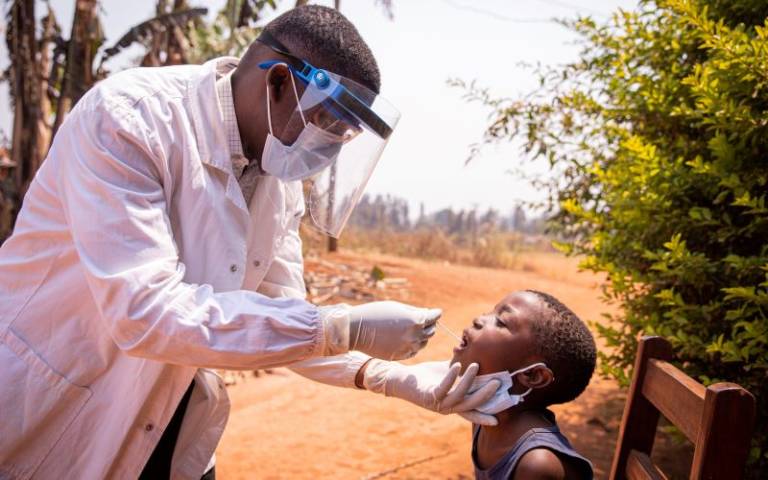Professor Sir Michael Marmot to co-chair Global Council on Inequality, AIDS and Pandemics
7 June 2023
The Joint United Nations Programme on HIV/AIDS (UNAIDS) has created a new Global Council on Inequality, AIDS and Pandemics, with the active involvement of the UCL Institute of Health Equity (UCL IHE).

UCL IHE Director, Professor Sir Michael Marmot, will co-chair the Council, alongside Nobel laureate in economics and Professor at Columbia University Joseph E Stiglitz, and First Lady of Namibia, Monica Geingos, who is an UNAIDS Special Advocate for Young Women and Adolescent Girls.
UNAIDS is leading the global effort to end AIDS as a public health threat by 2030 as part of the Sustainable Development Goals. UNAIDS unites the efforts of 11 United Nations agencies and has a history of working with civil society.
The Covid-19 crisis highlighted how pandemics expose and magnify health inequalities, which are mostly caused by inequalities in the circumstances in which we are born, grow, live, work and age – the social determinants of health (SDH). The SDH are driven by inequalities in access to money, power and resources.
Many of the same social and economic inequalities also drive HIV and Monkeypox.
The Council hopes to beat pandemics by prioritising human rights and tackling inequalities to help make the world more prepared.
Professor Sir Michael Marmot said: “UNAIDS’ unique role in bringing agencies together means the two-year council provides a real potential to reduce the risk of pandemics and better prepare for them by addressing the social determinants of health.
“The UCL IHE’s role will, in part, be building the evidence of the impact of inequalities on the course of pandemics and helping to develop recommendations for action.
“It is a privilege to work with my co-chairs Joseph Stiglitz and Monica Geingos. Together we will create an ambitious agenda and, with UNAIDS, build on the global social movement that was launched 15 years ago by the Commission on the Social Determinants of Health.
“Since 2008 there has been a lack of political will to act. We know what to do. Health inequalities are mostly caused by the social determinants of health – driven by inequalities in access to power, money and resources.”
Pandemics magnify how a person’s age, where they are born, grow, live and work, all help to determine their health and age of death.
Countries with higher rates of income inequality have higher rates of death from Covid-19, of AIDS deaths, and of HIV infection.
Global inequalities were amplified during the Covid-19 pandemic, when high-income countries put billions into health and social spending to fight the virus’ effects. However, in 2021 almost half of all developing countries cut health spending, and about 70% cut spending on education.
Additionally, Monkeypox was declared a global public health emergency by the World Health Organization (WHO) in 2022. However, in recent years, more than twice as many people have died of the condition in the Democratic Republic of Congo as in the entire rest of the world combined. Yet no vaccines for Monkeypox have been delivered to the country.
UNAIDS Executive Director, Winnie Byanyima, said: “We can beat pandemics and we can protect the health of all if we are bold in tackling inequalities, if we place human rights at the centre of our response.”
Links
- Global Council of Inequality, AIDS and Pandemics
- Professor Sir Michael Marmot's academic profile
- UCL Institute of Health Equity
- UCL Population Health Sciences
- UNAIDS
Image
- Credit: Media Lens King on iStock
Media contact
Poppy Danby
E: p.danby [at] ucl.ac.uk
 Close
Close

